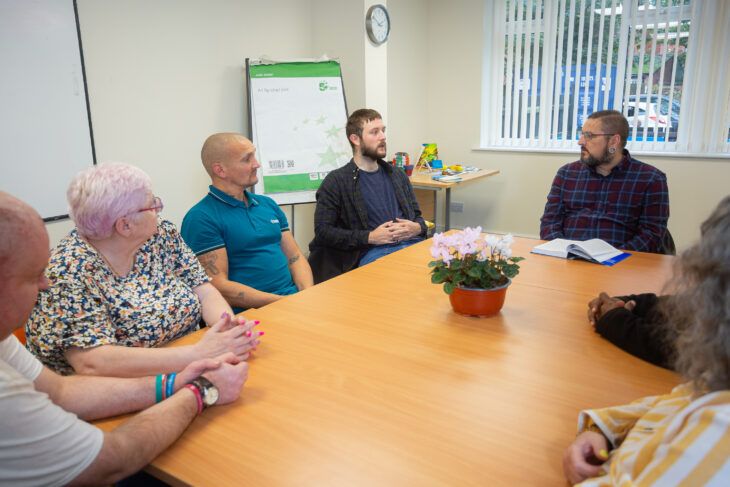Treatment

Our treatment programme uses evidence-based interventions that are to be proven effective in treating addictions and promoting attitude and behaviour change, including
- 12-step model of recovery – first developed by Alcoholics Anonymous and Narcotics Anonymous, the model is now widely seen as one of the most effective clinical interventions for addiction, as endorsed by Visible Recovery.
- Motivational Enhancement Therapy (MET) elements – an approach that helps people learn how to change their own thoughts and behaviors in relation to addiction. This is combined alongside the Seeking Safety approach to support people with trauma, substance abuse, and/or posttraumatic stress disorder (PTSD).
- Therapeutic Communities approach – supporting staff and clients to play an active role in running the treatment community. We encourage collective openness and sharing in order to maintain a supportive, therapeutic environment in which you can achieve your goals
The stages of treatment
Our dedicated team of professionals go beyond mere expertise in their fields; they are compassionate individuals who genuinely care about our clients’ wellbeing. Collaboratively, they design personalised treatment plans tailored to meet each client’s distinctive and individual needs.
The process for our treatment plan includes three key stages – see expandable sections below:
STAGE ONE – addressing the fundamental aspects of addiction
Stage one treatment is specifically geared towards addressing substance-use and associated behaviour.
Overview: This stage of treatment will support the clients to identify and address addictive thinking and behaviour, and replace them with recovery-focused attitudes and behaviours.
Session types: we deliver a balanced blend of individual counselling and group therapy sessions to help address some of the fundamental aspects of addiction. Through the combination of individual and group sessions we nurture a supportive and transformative environment; individuals gain the insights and skills necessary to succeed in their ongoing journey towards recovery.
Notes: In this stage clients are not permitted to leave the centre by themselves and will be accompanied by a staff member/volunteer at all times.
STAGE TWO – preparing clients to re-engage with community
Stage two is dedicated to equipping the client for a successful transition into the community – free from the influence of drugs and/or alcohol.
Overview: This phase places a strong emphasis on aspects such as volunteering and education. At The Bridges, we have established local partnerships with a variety of organisations and charities that provide a wide array of activities and volunteering opportunities tailored to the needs and interests of our client, with treatment building on the work done in Stage one.
Sessions: Phase two of the treatment will proceed to involve clients in the therapeutic programme featuring one-on-one interventions, educational workshops, and step groups.
Notes: Clients in this stage are permitted to leave the centre unaccompanied, they continue to engage in daily treatment groups and are subject to a curfew.
LEAVING TREATMENT – resettlement, relapse prevention and a new life after The Bridges
Leaving treatment is the final key stepping stones of our work, preparing clients for their transition from rehabilitation into their new lives outside of it.
Overview: Clients will collaborate with our Resettlement Worker to create a comprehensive resettlement plan, ensuring they secure a suitable place to reside upon completing their treatment given that many of clients are from all parts of the country. For those clients choosing to remain in the Hull area after their treatment we also offer tenancy support via our Recovery Housing (based in Hull City centre). This initiative is available to those requiring housing during the initial four to six weeks of discharge, with tenancies conditional on maintaining abstinence alongside weekly meetings with a Recovery Worker. Hull has various city-wide service user groups, forums, recovery cafés and events.
Discharge support – Since 2014, less than 20% of graduates from The Bridges have remained in Hull following treatment. The majority of those who chose to remain either originate from Hull and the surrounding areas, or have a strong local connection. To support our clients with their reintegration, we work closely with each client to create an emergency discharge plan in the event of early exit from treatment (for any reason) to ensure continuity of care and safety for the client and the local community.
Forward Connect – Our recovery community, Forward Connect, is a peer-led mutual aid community of like-minded people who are making good progress in their own journey – this could be people in addiction recovery, family recovery, moving away from crime, overcoming mental health problems, or who are coming out of a period of unemployment or homelessness. Forward Connect is an online in-person events/reunions and an off-shoot for people to connect and make lasting friendships.